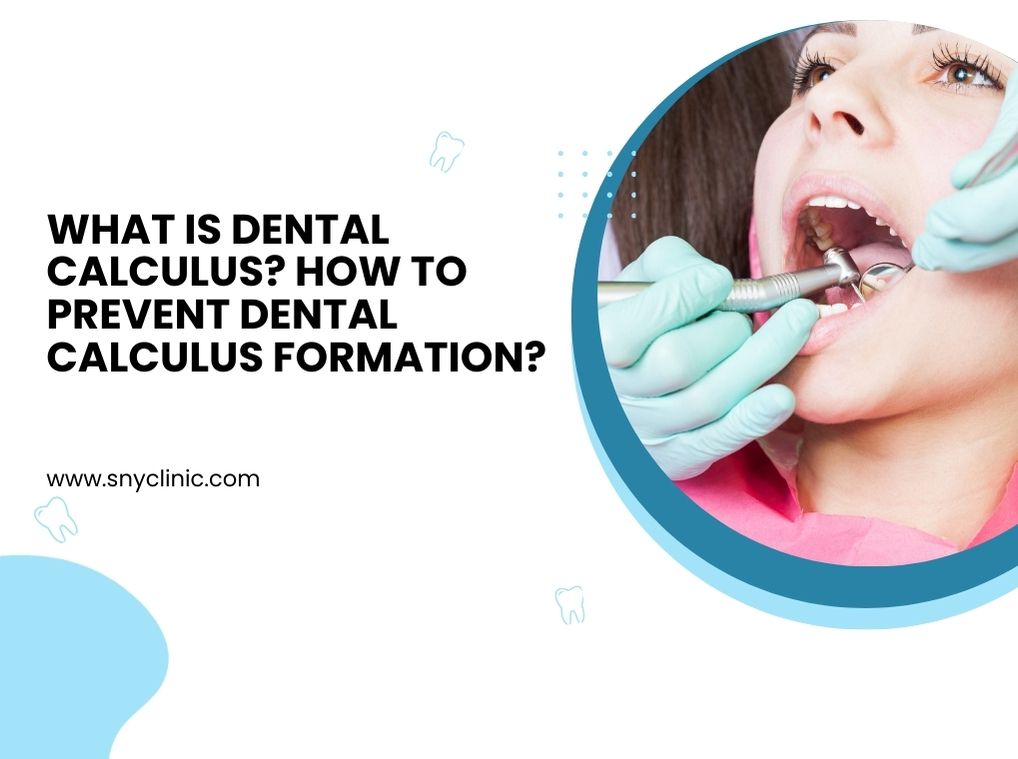
What is Dental Calculus? How to Prevent Dental Calculus Formation?
What is Dental Calculus? How to Prevent Dental Calculus Formation?
When it comes to oral and dental health, one of the most common problems that comes to mind is dental calculus (tartar). Although many people see it only as an aesthetic issue, tartar can lead to serious consequences such as gum disease and even tooth loss in the long run. So, what is dental calculus, how does it form, and what can be done to prevent its formation?
What is Dental Calculus?
Dental calculus is a yellowish or brown mineralized layer that forms when dental plaque accumulated on the teeth hardens over time. Plaque hardens when it combines with the minerals in saliva, and from this point on, it can no longer be removed simply by brushing. It usually appears more prominently along the gum line or on the back surfaces of teeth.
How Does Dental Calculus Form?
The main cause of dental calculus formation is the failure to remove plaque in the mouth in a timely manner. The following factors accelerate calculus formation:
-Poor Oral Hygiene: Neglecting regular tooth brushing and flossing.
-Dietary Habits: Frequent consumption of sugary and starchy foods.
-Smoking and Tobacco Use: Speeds up calculus formation and darkens its color.
-Saliva Composition: In some people, the content of saliva predisposes to faster calculus formation.
-Insufficient Water Intake: Dry mouth increases plaque and bacterial accumulation.
Harms of Dental Calculus
Tartar is not just an aesthetic problem; it also seriously affects the health of the teeth and gums:
-It can cause gingivitis (gum inflammation).
-It increases bad breath.
-It may lead to gum recession.
-If left untreated, it can cause advanced gum diseases such as periodontitis.
-It can progress to tooth loss.
How to Prevent Dental Calculus Formation?
The most effective way to prevent dental calculus is to make regular oral care a habit. Here are the tips to consider:
Regular Tooth Brushing
Brush your teeth at least twice a day using the correct technique, and do not neglect the gum line.
Use of Dental Floss or Interdental Brushes
A toothbrush alone cannot clean plaque between the teeth. Regular flossing significantly reduces tartar formation.
Mouthwash
Antibacterial mouthwashes reduce plaque formation and lower the risk of tartar.
Pay Attention to Diet
Avoid sugary and sticky foods, drink plenty of water. Fibrous foods help mechanically clean the tooth surface.
Avoid Smoking and Tobacco
Smoking causes tartar to form faster and in a denser manner.
Regular Dental Checkups
Tartar cannot be removed at home; it can only be cleaned by a dentist through a professional procedure called scaling. Therefore, regular dental checkups should not be neglected.
Dental calculus is a problem that can lead to serious oral health issues if neglected. With regular brushing, flossing, a healthy diet, and dental checkups, tartar formation can be largely prevented.
Remember, preventing tartar formation is just as important as cleaning it for maintaining a healthy smile.




